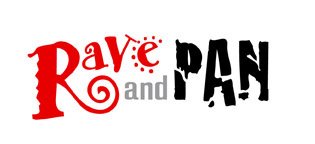(Reginald McAlpine as Chad Diety and Davis Aquila as "The Mace.")
This
is a play that desperately wants to be a satire on American values, reflected
through the faux posturing (and faux everything) of pro wrestling.
Written
by Kristoffer Diaz, it has all the elements of a potentially incisive look into
the myths we all share about race, among other things. It is particularly
on-target with the way wrestling creates heroes like the title character, and
villains like the “The Fundamentalist.”
These
“grudge matches” are of course simplistic, sort of the way Fox News covers
politics, so the overall metaphor at work has promise.
But
the script is saddled with long monologs spoken by Macedonio Guerra a wrestler who
is promoted with the nickname “The Mace.”
He
grew up loving wrestling and now claims he is the bomb in the ring. Except the
manager of his wrestling outfit, Everett K. Olson, always wants him to train
the other wrestlers and make them look good. He is seething with resentment
over this, but his long speeches eventually become tiresome and repetitive.
Performing
satire requires a production that is fine-tuned and consistent, otherwise it
can easily turn into mush. The Karamu cast under the direction of Terrence
Spivey gives its all to this effort, and there are certainly some well-ripped
bods on display.
But
this show body-slams itself in too many ways to eventually be very effective.
Davis Aquila as “The Mace” is earnest, but he never completely conquers the droning
speeches he has to impart. He, as well as others, occasionally speak too
rapidly and with less than precise diction, which doesn’t help.
Reginald
McAlpine struts and bellows as Diety, but we never learn much about him except
that he likes to speak of himself in the third person. “The Fundamentalist” was
born in India but due to his brown skin is rebranded as a Middle-Eastern Moslem extremist to
fire up the crowds. He is played by Prophet Seay, a talented actor who here
seems cut adrift by the need to speak in various accents, few of which ring
true.
Mark
Seven, as the wrestling manager Olson, speaks slowly and clearly enough. But
his melodramatic gestures and facial expressions are reminiscent of silent film
star Lillian Gish. Over-the-top acting is fine in a satire, as long as everyone
is along for the ride. Here, it seems everyone is doing his own play, and it
never comes together.
On
the plus side, there are a couple brief wrestling scenes that feel pretty
genuine, in a fake way of course. And kudos to scenic designer Richard H.
Morris, Jr. for creating a dramatic set including a true-to-life, full-size
wrestling ring.
The
Elaborate Entrance of Chad Diety
Through
April 6 at Karamu House, 2355 E. 89th St., 216-795-7077



